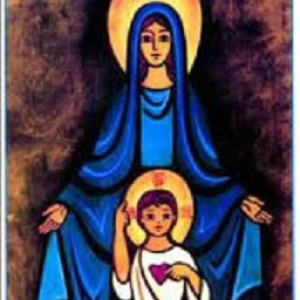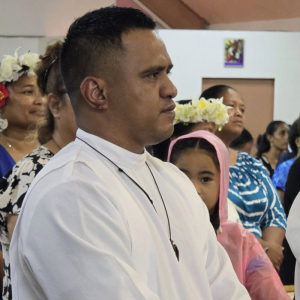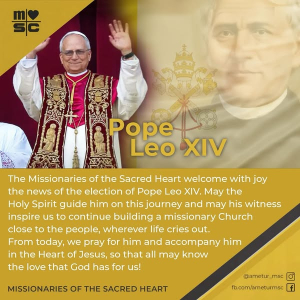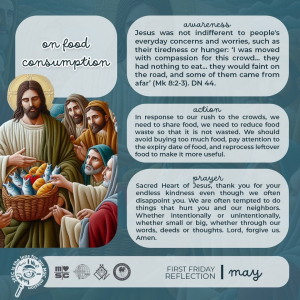Peter MALONE
Dad Quest, The/ Lo megor del mundo
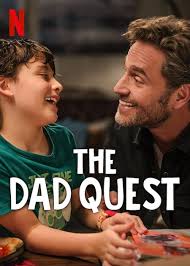
THE DAD QUEST/ LO MEJOR DEL MUNDO
Mexico, 2025, 83 minutes, Colour.
Michel Brown, Martino Leonardi, Mayra Hermosillo.
Directed by Salvador Espinosa.
The Dad Quest is a brief Mexican comedy drama, focus on the 10 year old, Benito, Martino Leonardi in his sole film appearance, his relationship with his mother, his father divorced, staying with his grandmother. Then it emerges that Gallo, his divorced father, is not his biological father.
Gallo and Benito go on a quest, bonding, searching his deceased mother’s phone for connections as to who is his biological father, a visit to an artist, a gym instructor, a television personality, getting information from a psychologist. The two are joined in the search of their mother’s friend, Diana.
There seems to be a happy solution with the boss of the agency for which Benito’s mother worked. They bond nicely but audiences are not sure whether he is the actual biological father. He warmly welcomes Benito. However, with the experience of travelling with Gallo, Benito and Diana run after Gallo as he leaves.
A caring foster father offers more support than an unknown or discovered biological parent.
- The title? Father-son relationships, biological, care?
- The Mexican setting, homes, outings, the encounters with potential fathers? The musical score?
- The introduction to Gallo, the airport, relationship with Alicia, the meal together, the background of the divorce, Benito, aged 10, custody, visits? Her exasperation, suggestion he was not the biological father, her exit, the accident, her death, the funeral?
- Gallo, the television work, his personality, working with his boss, the TV sequences? Memories of Alicia? Distant relationship with Benito? The encounters with Alicia’s mother, Benito staying with her, her idiosyncratic behaviour, the injury to the lizard…?
- Benito, aged 10, relationship with his mother, with Gallo? The alienation? The issue of his mother’s death, staying with his grandmother, his awareness of the situation, direct talk? His wanting to find his biological father?
- Gallo, the DNA test and the results? Talking with Benito? Benito and his mother’s phone, the candidates for his paternity? The quest? Going to the artist, the many portraits of Alicia, her pregnancy, and the later gift as asking for forgiveness? TV star, the clash with Gallo, non-admittance? The trainer, his work with Alicia and her program, the dance, inviting Benito to start child classes?
- Gallo preoccupied, his boss, the change of set, her following him, his decision to go to Miami for a job? Changing his mind in staying?
- The visit to the psychologist, Gallo and his threats, the information? The visit to the agent, his happy memories of Alicia? Possibly the father?
- Diana, her friendship with Gallo, going on the search, her interventions, support?
- Gallo and his leaving, the emotional ties to Benito after the event, the walkie-talkie Communications, sharing the meals, the visits, the journey? Benito embracing the agent, the agent and his wife and daughter, Benito and Diana hurrying to join Gallo?
- The significance of biological paternity, identity, the foster father? The future?
Sniper: G.R.I.T.: Global Response & Intelligence Team
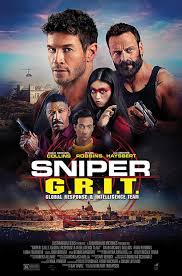
SNIPER: G.R.I.T., GLOBAL RESPONSE & INTELLIGENCE TEAM
US, 2023, 93 minutes, Colour.
Chad Michael Collins, Ryan Robbins, Luna Fujimoto, Dennis Hayesbert, Josh Brener, Matthew Sim.
Directed by Oliver Thompson.
There have been 10 and more Sniper films following the original in 1992 starring Tom Berenger – who appeared in a number of the later films. However, the later films focus on his son, Brandon, played by Chad Michael Collins. There are variations on the theme, Brandon is the Sniper, his collaborator Zero (Ryan Robbins) skilled in setting up situations. Their boss in several films is played by Dennis Hayesbert. Introduced in one episode is Lady Death, a Japanese assassin who continued in other films – this time, her being captured and the need for her rescue as well as an origin story of her becoming an assassin, the sinister presence of her father.
A lot of action, a high body count, the value of the settings in Malta. But, instead of the straight out serious tone, there is the atmosphere of a buddy movie, and often a tongue-in-cheek attitude towards the characters and events, some sardonic humour.
- The continued popularity of the Sniper franchise, 30 years.
- Audience knowledge of the central characters, their history, the previous films, their characters, action, capabilities? The situation of the capture of and the need for rescue?
- The introduction to Brandon and Zero, their characters, humour, their work together, Sniper, setting up situations? Humour? Gabriel Stone as their boss, summoning them, the situation?
- Malta, the visualising of the cult, Bubalo as the leader of the cult, his style, the crowds worshipping him, in green, sitting in assembly, his meal, the failure of mission and the death at the table? The group and their personalities, tasks, as explained by Gabriel Stone?
- The settings in Malta, landscapes, cities, the sea? The compound?
- The mission, Zero and his infiltration, disguise, not speaking the language, repeating phrases, persuading the members of the group to go to the roof? Brandon, Sniper, the set-ups, the various shops, Bubalo and his emerging, satisfaction, his death, everybody rushing away?
- The confrontation with the doctor, and her explanation that he saved her? His helping with the escape, hiding, Lady Death and her being shot, his tending her wounds?
- The suspicious behaviour of the doctor, Zero following him, the discovery of the truth, confrontation? The doctor and his contacts with Prince Caspian, the meetings, the deals, Communications?
- The background of Prince Caspian, the story of Lady Death, her adoption, the kindly father, the gangster, his training her to be an assassin, her success, her breaking away, his wanting her back, the deals?
- The tracking, the hired assassin, the group’s attacks on him, his being wounded? Waiting for him to arrive, the realisation of the tracking device, opening up her wounds and retrieving it, the new set up, into the trap?
- Prince Caspian, his contacts, coming to the compound? Zero, his contacts and getting information, connecting to computers, Intelligence Pete’s personality, Gabriel Stone seconding him, the flight, arriving, using the computer for infiltration and surveillance? Zero and Brandon, the confrontation between Prince Caspian and his daughter? The irony of Intelligence Pete bringing him down? Survivng and brought to trial?
- Mission accomplished, audiences enjoying all the action sequences, the large body count…? The sense of humour in the screenplay, sometimes sardonic, a different tone to it straight action film?
Head Count
HEAD COUNT
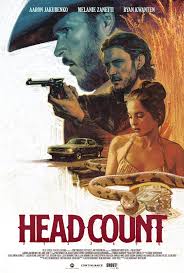 US, 2023, 180 minutes, Colour.
US, 2023, 180 minutes, Colour.
Aaron Jakubenko, Ryan Kwanten, Kyle Dyke, Melanie Zanetti, Polaris Banks.
Directed by Jacob Burgardt, Ben Burgardt.
This is a first feature film of brothers, Jacob and Ben Burgardt. They have made a number of short films. Here they shall arise sense of humour, a number of viewers making a link with the films of the Coen brothers make Blood Simple and Fargo. Another American film worth viewing as a companion to Head Count is Greedy People.
The framework of the film is the central character, Kat, with the gun to his head, and his going back over his recent experiences to calculate how many bullets there are left in the gun. In the film goes back, first to his digging with the chain gang in prison, an attack by feral animals and his escape in the police car. There follow quite a number of episodes, always with the counting of the bullets, and many of them reminiscent, but with sudden and humorous twists – Kat in the wrong house and having to hide under the bed, a couple coming for an affair and the lover also hiding under the bed, an episode where Kat has to find money in an arms dealer’s house with the information that it is behind a picture of Jesus Christ – and the sudden turn of the camera to find so many pictures of Jesus on the wall…
There are flashbacks to Kat’s past, his relationship with Josephine, and then his further escape, meeting up with his sympathetic brother, with Josephine, encountering her current boyfriend.
A number of bloggers have not liked the film because they were taking it very seriously and finding it inconsistent – not realising the ironic and humorous tone.
- The tone of the film, serious and realistic? Ironic and stylised? Serious? Comic?
- The title, the reference to the gun, the bullets, Kat counting them, assessing his chances of survival?
- The American setting, the prison fields in Kansas, on the road, service stations, homes, clubs, gun dealers? The narrative, the framework with the gun at Kat’s head, the flashbacks with Jo, the flashbacks with the gambling and the disposal of the body? The overall effect in 80 minutes?
- The present situation, the chain gang, the gardens, attitudes, especially Sawyer, the animals approach, dragging away the prisoners, Sawyer shooting the chain, Kat running, driving away? A serious and comic prologue with the animal attack?
- Kat, his age, finding out something of his background, relationship with Jo, her coming to the bar, his approach, his disappearance, prison? At the service station, affirmed by the rancher, taking his lunch? Going to the house, the comedy of the couple coming, his hiding under the bed, the husband arriving, the lover under the bed, his pulling the gun, the threats, escaping with the lover? The farcical enjoyment of this scene?
- Going to the bar, the encounter with Jo, dancing, her boyfriend and his watching? Kat and his brother, his brother and the casino gigs, the bond between them, helping him, the clothes?
- Sawyer in the bar, seeing him, the fight, Sawyer and his deal, Vince and the guns, the money behind the picture of Jesus, the sudden humour of so many pictures on the wall, Kat and his request for guns, Vince and his easy-going, finding the money, Mason arriving for his money, Kat, in the bathroom, the snake in the bath, escape from the window, the shootouts? Sawyer and the money, letting him go?
- Preparing to go to get away, Seattle and Alaska, the arrival of Cassidy, the injury to the eye, Kat’s foot, the arrival of Flint, the truth, the army, brutality, Flint sick of hearing all about Kat for three years…?
- The final fights, the guns, counting the bullets? The shock of the death of Kat’s brother?
- The overall effect, a laugh thriller, ironic, and the echoes of the Coen brothers?
iHostage
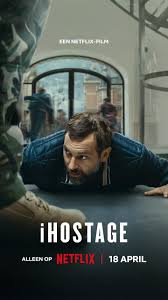
iHOSTAGE
Netherlands, 2025, 100 minutes, Colour.
Soufiane Moussouli, Admir Sehovic, Emmanuel Ohene Boafo, Loes Haverkort.
Directed by Bobby Boermans.
This film is based on actual events in Amsterdam, 2022.
A lone man, with Syrian background, resentment about the way he had been treated (the film not really exploring any further his background and motivations just focusing on the action of the siege) comes into a busy Apple Store in Amsterdam, a gun, firing it, warning people, explosives strapped to him.
Most people flee into the streets. Quite a number go to an upper floor for refuge. A salesman takes his customer and a mother and daughter and hide in the storeroom. A Bulgarian traveller, with whom the film begins with his arrival in Amsterdam for work, contact with his wife at home, goes to the store and becomes the main hostage.
Part of the drama is the interaction between the hostage and his captor, limited conversation, some kindness of the captor giving him his pills for his heart. There is also the drama of the four trapped in the storeroom, phone calls, supply of information, especially to help the rescue of those in the upper floor.
The main part of the film focuses on those responsible, the initial young police at the beginning of the siege, there are the various authorities of the Amsterdam police and security, their personalities, their roles, the masked men ready to go into action who rescue the people from the upper floor. And, especially, the demand for a negotiator, a woman with some charm, skill in keeping the captor talking, then his not wanting a woman, her helping coaching the man who responds with the negotiations.
There is quite a team, getting information, a huge range of surveillance cameras. The rescue of those in the upper floor is handled well and briskly. The communications between the four in the storeroom is also very effective. And, finally, with a request for water, the hostage makes a run for it dragging his captor behind him who is then hit by a vehicle.
Those interested in the workings of the police and negotiators, there is continued interest. And, at the end, some limited explanations of the character and his hostage.
- Based on actual events, Amsterdam and the police response, the hostage taker and his origins, motivations? Hostages? Negotiations?
- The atmosphere of the city, buildings, canals, streets? The Apple Store, the interiors, the police precincts, surveillance screens? The squads in the street? The musical score?
- The introduction to Illian Petrov, in the train, sleep, Bulgarian, arrival at the hotel, in Holland for work, call with his wife, her support, finance, hopes? His going to the store, wanting the imbalance? The salesman? The other customers, Mingus and the man with his phone? Ordinary daily atmosphere?
- The arrival of Ammar, his appearance, hood, jacket, the gun, calling out, firing, the explosives? The reaction, everybody fleeing the building and hiding, Mingus and the three in the store room? The Syrian background, his talking of injustice to himself, not being able to take anymore, the siege reaction? The audience not learning any more about him or his motivation?
- The drama of the siege, those fleeing in the streets, those in the upstairs floor, the four in the store room? Illian, his being taken by Ammar, hands bound, the experience of the day, sitting, kneeling, his being given his tablets, some discussion and revelation?
- The young police in the street, running to the store, hiding, the shots? Headquarters, the range of authorities, responsibilities, personalities, Winston with his family, the members of the squad masked for action, the surveillance cameras?
- The demand for a negotiator, Lynne, her abilities, pleasant, keeping him talking, interest? His reaction, not wanting a woman? The man taking over, Lynne giving him advice?
- The various authorities, the central command, decision-making, the contacts on the street? The contact with those in the top floor, the posting on the Internet and the heavy demands for its removal, the squad going in, Mingus supplying the backdoor information, the efficiency of the entry, the quick removal of the hostages, success?
- Mingus, the young man and his moment of resentment, apology, the mother and daughter, the mother and her panic attack? The daughter with a phone, Mingus and communications, advice, the doctor online to check on the panic attack? The rescue?
- The hostage, the day passing, hands tied, kneeling, sitting, some information, the revelation of names? The pills? The soft drink? Time passing?
- Ammar, as the day went on, the demand for bitcoin, the limousine, the reactions with Lynne, cutting off, resumption? With the man? His resentments?
- The issue of the water, the machine bringing the water to the door, the two going to the door, opening, Illian running, are in pursuit, the vehicle and the crash, intentional, motivation, criminal or justified?
- The aftermath, Illian going back to his hotel, Mingus in the car, weeping, Winston reunited with the family? The authorities, quiet, Lynne, the planning for the debriefing the next day?
- The final information during the final credits? True story, the Bulgarian man remaining anonymous, the different information about Ammar and his mental state, weapons, motivations?
Some Significant May Days for the Chevalier Family, 2025
Some Significant May Days for the Chevalier Family, 2025
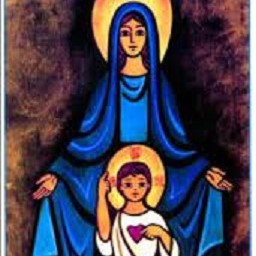
May, an Our Lady of the Sacred Heart month.
A reminder, May 6th, that the Church of Our Lady of the Sacred Heart in Randwick was opened in 1888, only a few years after the arrival of the first MSC in Sydney. The parish in those days extended to Botany.
1 May, 1863
An article on Our Lady of the Sacred Heart appears in the Jesuit publication, "Messager du Sacré-Coeur", founded by Fr. Henri Ramière, SJ. It is the first presentation of this new title for Mary.
1 May, 1883
Canonical erection of three MSC communities in Peru: Lima (Seminiario Nuestra Senora del Sagrado Corazon), Acari, and Puquio.
2 May, 1864
An article on Our Lady of the Sacred Heart appears in the “Annals de Saint Sacrament” (May 1864).
2 May, 1950

Father Harry Reid MSC (AUS), arrives in Japan to set up a mission in conjunction with Father Archibald Bryson MSC, Army Chaplain.
3 May 1928
Mother Liboria Loeper, Provincial of the American Province MSC Sisters, arrived in Sydney to begin an Australian foundation that would be of support to the established Mission in Papua New Guinea.
4 May, 1923
The Vicariate of the Marshall Islands is united with the Vicariate of the Caroline Islands and the Marianas, and is entrusted to the Society of Jesus. The German MSC had to leave the Marshall Islands in 1919.
4 May, 1965
First canonical erection of an MSC House in the Dominican Republic at San Jose de las Matas, Santiago, Castillo.
5 May, 1894
Erection of the “the Northern Province” of the MSC (Holland, Belgium, and Germany-Austria). It has three houses: in Borgerhaut-Antwerp, Belgium, Tilburg, Holland, and Salzburg-Liefering, Austria.
6 May, 1876
Watertown, New York, arrival of Father Durin, superior of the new community, with two scholastics.
6 May, 1883
The shrine of Our Lady of the Sacred Heart at Sittard, Netherlands is elevated to a Basilica by Pope Leo XIII. Today, it is the National Shrine of Our Lady of the Sacred Heart in the Netherlands.
6 May, 1888
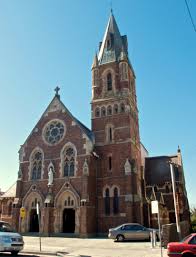
In Randwick, Australia, the church built by Father Michael Tierney, is dedicated to Our Lady of the Sacred Heart. Today, it is the National Shrine of Our Lady of the Sacred Heart in Australia.
7 May, 1892
On his way to Yule Island to Europe, Bishop Verius arrives in Sydney. His confreres receive him well – and sending right away to the tailor and the barber.
10 May, 1887
The first team of missionaries leaves France for Quito, Ecuador, under the guidance of Father Morisseau, general assistant.
10 May, 1888
The first MSC Fathers Edouard Bontemps and Joseph Leray, and Brother Conrad Weber arrive in Kiribati! Fr. Leray would later become the first Bishop of Gilbert Islands.
10 May, 1889
Erection of the Vicariate of New Pomerania (Rabaul, PNG), entrusted to the MSC. Father Henry Verius is appointed as its first Vicar, soon afterwards replaced by Father Louis Coupe.
12 May, 1931
Father Eugène Meyer dies in Issoudun. He was the Superior General of the MSC from 1905 to 1920, the second after Father Jules Chevalier.
12 May, 1991
Ambrose Kiapseni MSC is ordained first PNG Bishop of Kavieng.
14 May, 1926
Father Pierre-Marie Tréand, founder and first Provincial of the Australian MSC Province, dies this day.
17 May, 1977
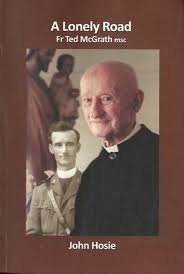
Death of Father Timothy McGrath MSC (Australia) who worked with Eileen O’Connor, in the founding of Our Lady’s Nurses for the Poor.
18 May, 1856
Still early days of the MSC foundation. Father Charles Piperon joins the budding community of the Missionaries of the Sacred Heart, in Issoudun. Two days later, the Archbishop of Bourges appoints him as Prison Chaplain at Issoudun.
21 May 1928.
At Station Pier, Melbourne, she welcomed Srs Eulalia, Aquilina, Maurilia, Zaccharia, and Margareta. Their first destination was Rupertswood, Sunbury where they provided practical support to the Salesians.
21 May, 1899
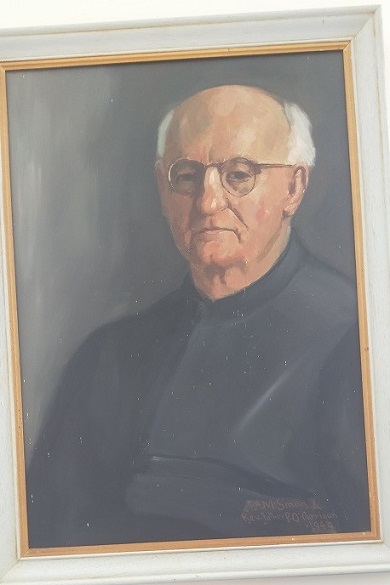
First vows of Brother Robert South, first brother of the Australian Province.
21 May, 1910
The four houses in the United States (Watertown, Natick, Casanovia, Onowa) are united into a Quasi-Province.
22 May, 1839
Jules Chevalier is 15 years old. On this day, he received the sacrament of Confirmation at Richelieu. He received his First Holy Communion three years earlier on 29 May, 1836, again in Richelieu.
23 May, 1879
Blessing of the church of OLSH at Piazza Navona by the Cardinal Vicar of Rome.
23 May, 1970
The MSC Section in Rio De Janeiro, started by the Dutch Province in 1946, becomes a Region.
24 May, 1886
First Australian OLSH postulant: Sister Margaret Mary Sweeney.
24 May, 1911
Arrival of the first two MSC in Brazil from Holland.
24 May, 1912
The first MSC houses in England and Ireland are united into “the Section of the British Isles”.
26 May, 1860
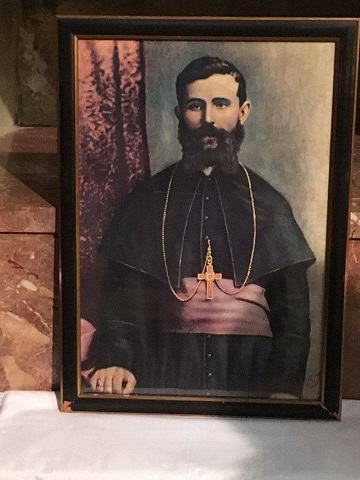
Henri Verjus is born in Oleggio, in Italy.
30 May, 1945
Father L.Beeckman MSC (Belgium) returns home from the Dachau concentration camp.
31 May, 1865
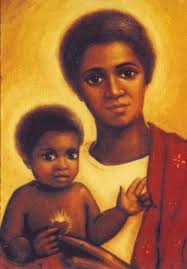
The feast of Our Lady of the Sacred Heart is publicly celebrated for the first time.
By 1872 the feast is celebrated worldwide in 950 churches or chapels.
For quite some time, this feast was held on this date, but today, globally, the feast is observed on the last Saturday in May.
31 May, 1868
The number of members of the Confraternity of OLSH reaches 2 million.
31 May, 1919
The first six postulants into the new Papuan Congregation of the Handmaids of the Lord at Kabuna.
Congratulations, Julson Ribauw MSC, Final Vows
Congratulations, Julson Ribauw MSC, Final Vows
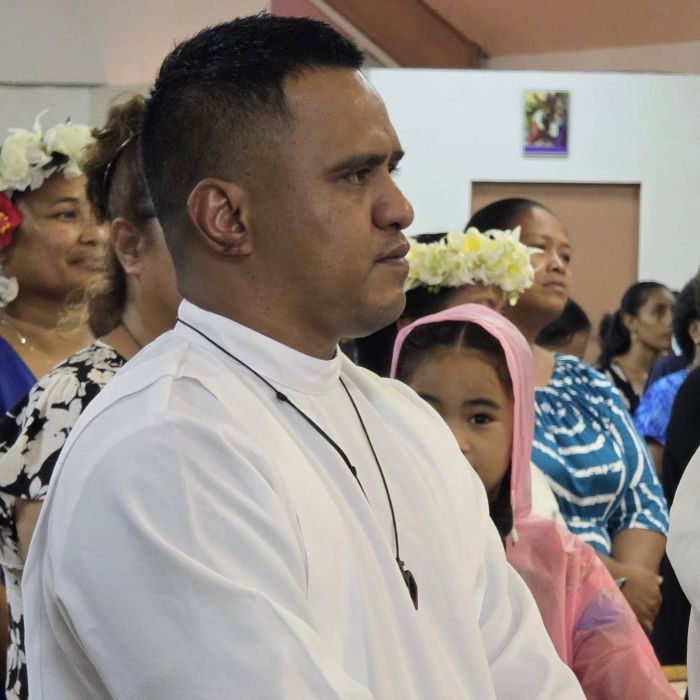
From Robati Tebaieua MSC
History in the making: Today a son of the Catholic Church in Nauru received his Perpetual Vows in the Society of the Missionaries of the Sacred Heart for the very first time since 1898.
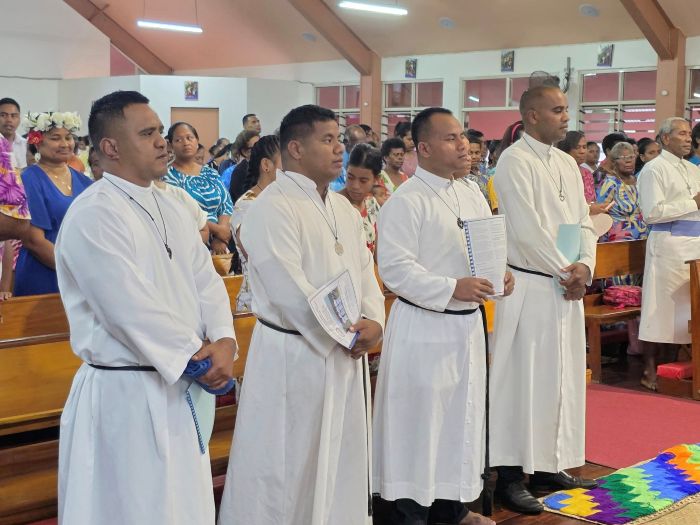
Br Julson Ribauw MSC professed his Perpetual Vows of Obedience, Poverty and Chastity; with three other brothers Br Tadeo (Fiji), Br Babetara (Kiribati) and Br Buroro (Kiribati). Congratulations Brothers.
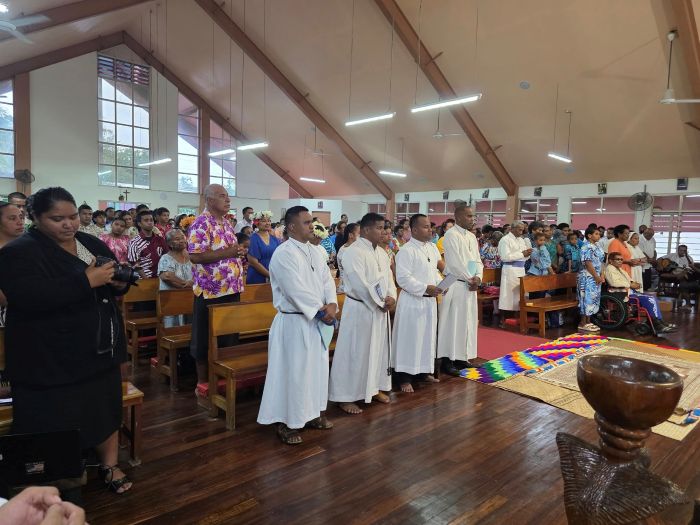
Last year, Julson spent some time in Randwick parish. As he left:
Today, we farewell Br Julson Ribauw MSC as he leaves our Parish and moves on to new adventures and further study in the Phillipines.
In his short time with us, Br Julson has been an invaluable part of the Parish team, always ready to offer help and humour whenever needed. We will miss Br Julson but wish him well and hope to see him back in Randwick for a visit in the future!
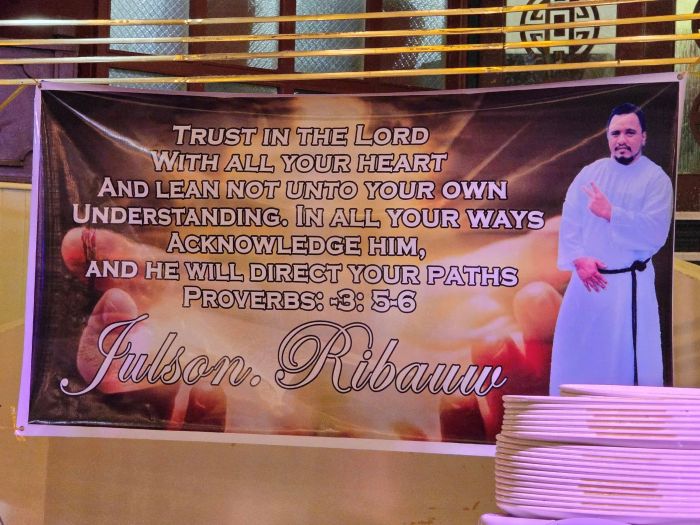
We, Missionaries of the Sacred Heart welcome Pope Leo XIV.
We, Missionaries of the Sacred Heart welcome Pope Leo XIV.
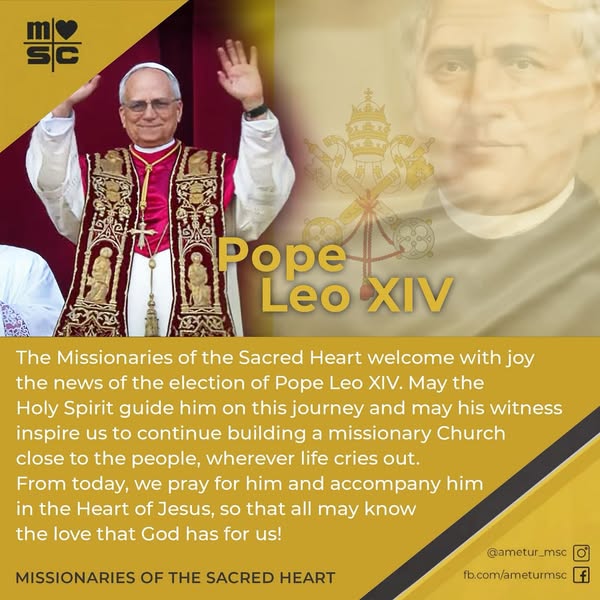
Poster circulated by Abzalon, Superior General, MSC affirmation of Leo XIV.
While everybody is posting a tribute to the new Pope, we thought it might be good to check out some MSC connections.
* Robert Prevost studied at the Catholic Theological Union, Chicago, where MSC students studied, where a number of Australian MSC had sabbaticals and attended renewal programs.
* Fr Prevost, later Bishop Prevost, was a missionary in Peru where German MSC began a mission (with several MSC Bishops there) and where the MSC sisters work.
* As Prefect for the Dicastery of Bishops in recent years, he was instrumental in the appointments of Simon Mani and Tamati Sefo in the Pacific.
While there can be ‘guilt by association’, we are happy with ‘affirmation by association’.
(An Australian PS. Mark O’Connor FMS, Parramatta Diocese, was wanting to invite Cardinal Prevost to Australia for the Helder Camara lecture. As Superior General of the Augustinians (2001-2013), Fr Prevost visited the OSA province in Australia. Mark revealed the Pope’s preference for Tim Tams, and something of a distaste for Vegemite.)
A Tribute as we remember our confrere, Michael Fallon MSC
A Tribute as we remember our confrere, Michael Fallon MSC

Last week, a requiem Mass for Michael was celebrated at Holy Rosary Church, Kensington. Relatives, as well as friends from the UNSW Chaplaincy days, shared memories. He was then buried at St Mary’s Towers, Douglas Park.
By way of tribute, here is the entry for Michael in the Annotated Bibliography of the Province, one of the largest. His last book was published at the end of 2024, Jesus’ Belief in God.
This entry is not for total reading, but an indication of Michael’s vast writing ministry. - and some photos from our archives.

FALLON, Michael (1937 – 2025)
The principal source for information on the work by Michael Fallon is his website. The website contains descriptions of all his books. It also has an extensive list of CDs as well as audio of lectures which can be downloaded for listening. Go to mbfallon.com
AT HOME WITH GOD, A Catholic View of Life.
Chevalier Press, Kensington, 1977, pp. 148.
An introduction to a Catholic view of World Religions, the Bible, Jesus, Theological Virtues, the Sacraments.
THE FOUR GOSPELS: an introductory commentary.
Catholic Adult Education Centre, Sydney, 1980, pp. 465.
THE WINSTON COMMENTARY ON THE GOSPELS,
Wiinston Press, 1980, (US edition of The Four Gospels)
THE OLD TESTAMENT: AN INTRODUCTION TO WRITINGS SACRED TO JEWS AND CHRISTIANS.
Chevalier Press, Kensington NSW. 2014, Pp. 221.
THE BOOK OF GENESIS
Chevalier Press, Kensington, NSW.2008, Pp.246.
UNDERSTANDING the kind of literature that we find in the Book of Genesis is fundamental to how we read this inspired work. This is especially important today because of the insistence of many who think that truth in the inspired word requires that it make only statements of fact, as though God could not inspire poetry, drama and saga. They resist the findings of scientific inquiry, both literary and archaeological. In doing so they misinterpret Scripture, and fail to appreciate the wonderful richness of this literature. (Michael Fallon’s own description.)
A PRIESTLY KINGDOM AND A HOLY NATION
Chevalier Press, Kensington, NSW. 2008, pp. 441.
EXODUS tells the story of God’s action in freeing a group of slaves from forced labour in Egypt, and leading them to Mount Sinai. Numbers completes the journey from Sinai to within sight of the Jordan River and the Promised Land. Between Exodus and Numbers is Leviticus. It lists the cult and other laws that had developed over the centuries and portrays them as having been commanded by God to Moses on the holy mountain. At one level Moses is centre stage, but the focus is on the wonderful Providence that brought these escaped slaves to a new idea of God as the God, not of the powerful, but of the poor, the weak, the widow and the orphan. The God of Moses, the God of the people of Israel, is a God who hears the cry of the poor. (Michael Fallon’s own description.)
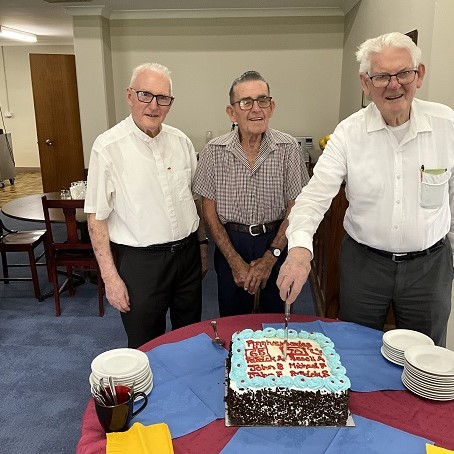
THE BOOKS OF DEUTERONOMY, JOSHUA AND JUDGES
Chevalier Press, Kensington, NSW. 2008, Pp. 355.
DEUTERONOMY is a presentation of the essence of the religion of Israel. It reads as the final exhortation of Moses to the people before he hands over command to Joshua and dies on Mount Nebo, having seen but not entered the Promised Land. Deuteronomy refers back to the events that are recorded in Exodus and Numbers. Presented as it is as a long exhortation it highlight the fact that Bible texts were written to be proclaimed when the people assembled for worship. It was composed to encourage the people to remember their past and to be faithful to God who had chosen them as his own. It invites them (and through them us)
to see the continuing activity of God in each new generation. (Michael Fallon’s own description.)
THE PSALMS
Chevalier Press, Kensington, and NSW. 2005, Pp. 512
Writing in Alexandria in the fourth century, Saint Athanasius has this to say: 'The BOOK OF PSALMS is like a garden which contains the fruits of all the other books, grows a crop of song and so adds its own special fruit to the rest. It seems to me that for the person who recites them the psalms are like a mirror in which we may see ourselves and the movements of our heart and mind and then give voice to them. (Michael Fallon’s own description.)
ISRAEL’S 8TH CENTURY PROPHETS [AMOS, HOSEA, ISAIAH, MICAH]
Chevalier Press, Kensington, NSW. 2011, Pp. 233
The decades just before the middle of the eighth century BC were years in which Israel and Judah experienced relative peace and prosperity. Sadly, along with this went injustice. All four of our prophets speak out against this. The second half of the century witnessed the aggressive expansion of Assyria first into Israel and then into Judah. Hosea, Isaiah and Micah all had to deal with the effects of this expansion. Their guidance was ignored for the most part by their contemporaries. (Michael Fallon’s own description.)
ISRAEL’S 7TH CENTURY PROPHETS [ZEPHANIAH, NAHUM, HABAKKUK, JEREMIAH]
Chevalier Press, Kensington, NSW. 2011, Pp. 283
THE PROPHETS covered in this volume ministered in the eventful final three decades of the seventh century, decades which saw the ambitious attempts by King Josiah to restore the kingdom of David. The seventh century ended with the capture of Jerusalem and the exile of its king and leading citizens, tragedies echoed in the oracles of Habakkuk and Jeremiah. (Michael Fallon’s own description.)
ISRAEL’S 6th CENTURY PROPHETS [EZEKIEL, ISAIAH 40 - 66, HAGGAI AND ZECHARIAH]
Chevalier Press, Kensington, NSW. 2011, Pp. 353
EZEKIEL and the Isaiah School responsible for Isaiah 40-55 wrote from exile in Babylon. Haggai, Zechariah and the Isaiah School responsible for Isaiah 56-66 wrote from Judah in the years after the return from exile. (Michael Fallon’s own description.)

ISRAEL’S 5TH CENTURY PROPHETS [OBADIAH, ZECHARIAH, JOEL, MALACHI, JONAH] AND DANIEL.
Chevalier Press, Kensington, NSW. 2011, Pp. 167
THE AIM of this Introductory Commentary is to attempt to discover and express what it was that the prophets of fifth century Israel (and second century Daniel) intended to say by their words, how their contemporaries understood them, and why people cherished, preserved, copied, edited and handed on their words. This is harder to do for fifth century Judah than for earlier centuries because of the poverty of the historical record, and because the prophets, living under Persian domination, were less interested in history
than in their hope of divine intervention. (Michael Fallon’s own description.)
THE ISAIAH SCROLL
Chevalier Press, Kensington, NSW. 2009, Pp. 271
THE BOOK OF ISAIAH covers over three hundred years of Judah's history, and reflects on the presence and action of YHWH in that history, including the years that led up to the Fall of Jerusalem, the traumatic years of exile in Babylon, and the difficult years after the exile, in which the he School of Isaiah struggled for the soul of Judah. (Michael Fallon’s own description.)
THE FESTIVAL SCROLLS [THE SONG OF SONGS, THE BOOK OF RUTH, LAMENTATIONS, ECCLESIASTES, ESTHER]
Chevalier Press, Kensington, NSW. 2011, Pp. 216
THESE SCROLLS were preserved in the hope that later generations, through prayerful reflection, would come to know God and how we are to live so as to welcome God's blessings. The continued use of these scrolls by the Jewish community in the various festivals that are part of their liturgical calendar is witness enough to the value attached to them. (Michael Fallon’s own description.)
THE BOOK OF PROVERBS, THE BOOK OF JOB
Chevalier Press, Kensington, NSW. 2011, Pp. 228
THE BOOK OF PROVERBS is a collection of the oldest wisdom sayings of Ancient Israel. It includes instructions and suggestions on how to live a productive and fulfilled life. The 'wise sayings' are the fruit of reflection on life experience and on Israel's faith. The BOOK OF JOB, acknowledged as a poetic masterpiece, examines human suffering, and in doing so challenges traditional 'wisdom'. (Michael Fallon’s own description.)
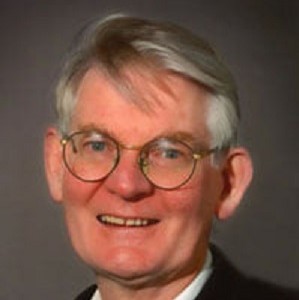
FIRST & SECOND SAMUEL. FIRST CHRONICLES
Chevalier Press, Kensington, NSW. 2012, Pp. 211
The Books of Samuel tell the story of the beginnings of the monarchy in Israel, first King Saul and then King David. The stories speak of what the nation and its leaders are called to be. Hence the central role of the prophet Samuel and the inclusion of these writings among the Prophetic Scrolls. Writing some centuries after the Books of Samuel, the author of First Chronicles revisits the story of King David, portraying him as the ideal king, and tracing back to him the religious practices that were current in the Judaism of the fourth century BC. (Michael Fallon’s own description.)
FIRST & SECOND KINGS. SECOND CHRONICLES
Chevalier Press, Kensington, 2012, NSW.
The Books of Kings tell the story of King Solomon and the kings of Israel and Judah down to the destruction of Jerusalem in 587BC. The aim of the authors was not to repeat the history, but to offer an interpretive commentary, focusing on the way they understood God to have been present and active in their past. Hence the central role of the prophets. Hence the inclusion of these writings among the Prophetic Scrolls. The author of Second Chronicles revisits the story of the kings of Judah tracing the history of the religious practices that were current in the Judaism of the fourth century BC. (Michael Fallon’s own description.)
THE BOOKS OF EZRA & NEHEMIAH
Chevalier Press, Kensington, NSW. 2012, Pp. 84
The Book of Ezra tells the story of the return of the exiles from Babylon to Judah, and the re-building of the temple. Drawing on the memoirs of Ezra, it goes on to record his arrival in Judah in 458BC and his work in reforming the life of the community according to the law, which he brought with him from Babylon. Tradition looks on him as a second Moses, who established the foundations of post-exilic Judaism. The Book of Nehemiah draws on Nehemiah’s memoirs to tell the story of his period as governor of Judah, firstly from 445-433BC, and then for a second term some years later. It was he who saw to the rebuilding of the walls of Jerusalem. (Michael Fallon’s own description.)
FIRST & SECOND MACCABEES
Chevalier Press, Kensington, NSW. 2012, Pp. 186
These two very different books tell the story of the successful struggle of the Jews to hold on to their faith and their religious traditions against the overwhelming pressure to be part of the Hellenistic culture that threatened to swamp them in the second century BC. I Maccabees highlights the heroic resistance of the priest Mattathias, and the brilliant and finally successful guerrilla campaign led by his sons Judas, Jonathan and Simon. II Maccabees was written a decade later.
It recognizes the providential significance of Judas Maccabaeus (after whom the books are named), but the author’s focus is on God, not on the Hasmonaean dynasty of which he clearly disapproves. (Michael Fallon’s own description.)

TOBIT AND JUDITH
Chevalier Press, Kensington, NSW. 2012, Pp. 113
Tobit is a short story, a romance. The author, writing somewhere in the East, and probably in the third century BC, wants his Jewish contemporaries to appreciate the blessings of the covenant they have with their God, and the benefits that flow from a life lived in obedience to the Torah. The story has a lot to tell us about living a noble and just life, expressed in acts of kindness.
Judith, too, is a story, composed in Judah in the last decades of the second century BC. The heroine is a woman, Judith, who lives in an imaginary town in Samaria. She is victorious over the general of the most powerful army in the world. The author wants to encourage his contemporaries to persevere in their faith. Their situation may appear impossible, and their enemies invincible, but only God is invincible and God is committed to his people. They must never lose faith or abandon their traditional way of life in obedience to the Torah. (Michael Fallon’s own description.)
WISDOM OF BEN SIRA & WISDOM OF SOLOMON
Chevalier Press, Kensington, NSW. 2012, Pp. 272
As well as such inspiring passages as Chapter 24 (a hymn to Wisdom), Chapter 34:14-20 (on divine providence), Chapter 39:12-35 (in praise of the Creator), and the concluding hymn (51:13-30), we can find many gems of wisdom from Ben Sira, a remarkable teacher whose career in Jerusalem spanned the final decades of the third century BC, and continued into the early years of the second century.
There are times (but very few) where Christians reading this text can imagine Jesus saying: ‘It was said to you of old, but I say’. One obvious example is Chapter 12:1-7, where the author assumes that God hates sinners, and encourages his students to do the same. He speaks quite beautifully about forgiveness, but it does not extend to one’s enemies. He displays a special antipathy to the Samaritans. He encourages a caring attitude to those in need, but his attitude to women witnesses to the prevailing assumption that they are inferior to men. However, all in all, Ben Sira offers much practical and wise advice, as relevant in our day as it was in his.
The author of the Wisdom of Solomon composed his work two centuries later, in Alexandria, during the Roman period. He draws on the same Jewish tradition, but he also draws on current Hellenistic philosophy with which he was very familiar. He writes in Greek, and when he covers themes found also in Sirach he uses the language, not of the Septuagint, but of the Hellenist schools. He wants his students to engage with Hellenism, but to value the special wisdom that is their patrimony as Jews. (Michael Fallon’s own description.)
THE GOSPEL OF ST MATTHEW
Chevalier Press, Kensington, NSW. 1997, Pp.395
It is the Spirit of Jesus who continues to use MATTHEW'S text to draw us into a deeper understanding of and love for God, revealed so beautifully in Matthew's portraits of Jesus. Matthew is also intensely interested in the Church, a community of faulty human beings in whose midst is the risen Jesus, who is constantly teaching, forgiving and drawing us into ever closer communion with one another as we strive to carry on his redemptive mission in the world. 395 pages $25 (Michael Fallon’s own description.)
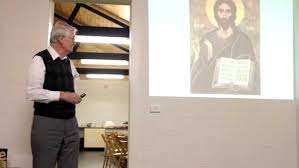
THE GOSPEL OF ST MARK
Chevalier Press, Kensington, NSW. 1997, Pp. 293
MARK'S GOSPEL is very conscious of conflict. In this too he has a lot to teach us. Having lost his two mentors, Peter and Paul, in Nero's persecution in the middle sixties, Mark completed his gospel during the catastrophe of the Jewish-Roman war that broke out in 66AD. Many Christians must have been wondering about the reality of the salvation brought by Jesus. Similar questions face us today. (Michael Fallon’s own description.)
THE GOSPEL OF ST LUKE
Chevalier Press, Kensington, NSW. 1997, Pp 375
LUKE'S GOSPEL is intricately and delicately composed to highlight his main themes. He is especially interested in God's action in history, seen in the ministry of Jesus and carried forward in the ministry of the apostles and Paul. Luke is inviting his readers to examine their own religious experience and to discover, especially in their experience of God's forgiveness, and in their endurance as disciples, the action of God's Holy Spirit binding them to Jesus and enabling them to persevere as Jesus' disciples, continuing his mission in the world. (Michael Fallon’s own description.)
THE GOSPEL OF ST JOHN
Chevalier Press, Kensington, NSW, 1998, pp. 386
Our earliest systematic commentary on JOHN'S GOSPEL comes from Origen, writing in Alexandria c.230AD. He states: 'We might dare to say that the Gospels are the first fruits of all Scriptures, but that the first fruits of the Gospels is that according to John, whose meaning no one can understand who has not lain on Jesus' breast nor received Mary from Jesus to be his mother also. However, he who would be another John must become like John ... For indeed everyone who has been perfected "no longer lives, but Christ lives in him" (Galatians 2:20), and since Christ lives in him it is said of him to Mary "Behold your son". (Michael Fallon’s own description.)
THE ACTS OF THE APOSTLES
Chevalier Press, Kensington, NSW, 2003, Pp.264.
The more we know of the first century Hellenistic world the better does Luke appear as a historian. Upon close examination claimed discrepancies between ACTS and what we know of Paul from Paul's own letters disappear and Luke's work is revealed as a rich resource for our understanding of Paul from one of Paul's collaborators. At the same time it is important to realise that the centre of attention is not Paul or any other apostle. Luke never allows our attention to stray from gazing with
wonder at what the Spirit of the risen Christ is doing in the world to continue Jesus' mission of revealing God as a God of love who is constantly drawing people together, whatever their racial identity, into a community of love. (Michael Fallon’s own description.)

ST PAUL: NEW TESTAMENT LETTERS VOLUME 1
Chevalier Press, Kensington, NSW, 2004, Pp.769.
The author writes: 'In some ways this commentary has been my life's work. I was first impressed by the breadth of Paul's thought during my studies in the seminary during the 50's. I was especially moved by the obvious love of the man and by the courage with which he carried out his mission of taking the best of the faith of Abraham and Moses – the faith as lived by Jesus – to the Gentile world. I found the universality of his thought inspiring and wonderfully relevant to our times, for we know that if 'salvation' means anything it must concern the human race, and not a special privileged group'. (Michael Fallon’s own description.)
STS JAMES, PETER, JOHN, JUDE, AND HEBREWS: NEW TESTAMENT LETTERS VOLUME 2
Chevalier Press, Kensington, NSW, 2004, pp.291
These marvellous LETTERS give us an insight into the wealth, depth and variety of the ways in which the Christian communities of the first century thought of Jesus, of the God of love whom he revealed, and of what it means to live as a disciple of Jesus, open to the grace of God's Spirit. (Michael Fallon’s own description.)
THE APOCALYPSE
Chevalier Press, Kensington, NSW, 2002, pp. 131
The Apocalypse is a dramatic and richly symbolic manifesto of the ultimate victory of love, of the values of Christ over against the oppression of the Roman state at the close of the first century. Modern attempts to identify today's events in its pages are misguided, for the aim of its author was to help his contemporaries see the events of their own day in the light of faith, not to offer them tantalising images of future events which could have no relevance for them. (Michael Fallon’s own description.)
WHO IS JESUS?
Parish Ministry Publications, Sydney, 1987.
'Who is Jesus? - exploring the responses of the first Christian communities and the early Church councils. I
A PRIEST AFTER MY OWN HEART: EXPLORING PRIESTLY SPIRITUALITY
St Paul’s Publications, 2001 pp. 172.
This book is available only on Michael's website: mbfallon.com 'I will raise up for myself a faithful priest who shall act according to what is in my heart.' (1 Samuel 2:35). After reflecting on the sacramental consecration of the priest to Christ, and the role of the priest in the mission of the Church, this book focuses on the special holiness of one who is called to give his life in and for the world. It looks at different aspects of the mediatory role of the priest and the place of suffering in a priest's life and ministry. It concludes with a reflection on consecrated celibacy as the way of loving that the Church asks of priests.

YIELDING TO LOVE: LEARNING TO FOLLOW OUR YEARNING FOR DEEPER COMMUNION WITH GOD
St Paul’s Publications, 2005 pp. 206
The adventure of prayer is a journey over a lifetime with many twists and turning, plus the occasional crisis. Nobody else can make that journey for us. Nor can we see clearly what shape our future relationship with God will take … This is where we can learn from those who have made the same journey as ourselves … Father Fallon is especially indebted to two great Carmelite saints, Teresa of Jesus and John of the Cross, but he presents their teaching in a way that reflects his years of study in the field of biblical exegesis, and his pastoral dealings with many ordinary Christians This is a book that will repay loving attention. I recommend it to all who seek to deepen their prayer and through it to grow in love for God and neighbour' (from the Foreword by Michael Casy OCSO).
A COMPANION TO THE CATECHISM OF THE CATHOLIC CHURCH
Chevalier Press, Kensington, NSW, 2013, pp. 415.
In introducing the Catechism, Pope John-Paul II declared: ‘it is meant to encourage and assist in the writing of new local catechisms, which take into account various situations and cultures, while carefully preserving the unity of faith and fidelity to Catholic doctrine’. What I am offering is not a catechism, but it in my prayer that you, the reader, will indeed find this book a true companion, as you delve into the rich resource which the Catholic Church has offered us in the Catechism. (Michael Fallon’s own description.)

THE QURAN FROM A NEW TESTAMENT PERSPECTIVE
Available from website, Michael Fallon, 2017, pp. 80.
The Quran from a New Testament perspective
The Quran and the Jewish Scriptures
The Christian New Testament and the Muslim Quran
Part One
Muhammad and the Quran
God
God’s revelation and religious texts
Obeying a non-Muslim government
Relations between man and woman
The fate of disbelievers
Misunderstanding Christian teaching
Divine authorisation of the use of force
Muhammad and the Christian Scriptures
Monotheism
The Divinity of Jesus and Christian teaching of the Trinity
Our destiny
Care for the poor
Part Two
Sûrahs 1 – 114
PRAYING THE PSALMS WITH JESUS
Chevalier Press, Kensington, NSW. 2018. Pp. 450
In 2005 I published The Psalms: an introductory commentary (Chevalier Press). Assisted by the nearly two thousand page commentary by Luis Alonso Schökel SJ (in Italian I Salmi, Editioni Borla, 1992), my aim was to discover and share the meaning that the psalms had for those who composed them and for those who prayed them in Ancient Israel, whether in the temple cult or in their own personal and family prayer.
My aim here is different. I want to explore how Jesus would have prayed the psalms, based on what we know of his mind and heart from the New Testament. Necessarily this will involve an editing of the psalms, for there are sentiments in some of them that contradict what Jesus knew of God and of the kind of communion with God that we are invited to enjoy. After presenting a translation of a psalm that I hope Christians, in communion with Jesus, can pray today, I indicate any verses that I have omitted, and then go on to meditate on the psalm, praying it with Jesus. (Michael Fallon’s own description.)
JESUS AS PORTRAYED IN THE NEW TESTAMENT. DIVINE LOVE IN A HUMAN HEART
Coventry Press, Bayswater, Vic, 2020, pp. 214.
But who do you say that I am? (Matthew 16:15). Jesus' question to Peter and the others is one that every disciple needs to consider, a question that is as old as the Christian tradition. And behind the question an even deeper and challenging one: Who is God?
Michael Fallon argues that the response to both questions must be informed by how we read the New Testament. There, we find the portrait of a man who lived and died in our world, a human being like ourselves, someone recognised by his followers as free from the fear of God or other people - someone who taught us to respond to the divine, someone in whom they acknowledged the human expression (Coventry Press).
SHARING JESUS’ BELIEF IN GOD
Coventry Press, Bayswater, Vic, 2024, pp. 80
Further explorations of the person of Jesus.

Chevalier Family, Justice and Peace Poster, May 2025, First Friday
Chevalier Family, Justice and Peace Poster, May 2025, First Friday
Apologies for the delay, timing and format difficulties

Havoc/ 2025
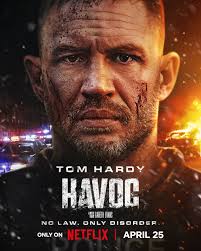
HAVOC
US, 2025, 107 minutes, Colour.
Tom Hardy, Jessie Mae Li, Justin Cornwell, Quelin Sepulveda, Timothy Olyphant, Forest Whitaker, Sunny Pang, Jeremy Ang Jones, Yann Yann Yeo, Michelle Waterson.
Directed by Gareth Evans.
As audiences watch Havoc, they will realise that havoc is an understatement.
This is a very violent film that will appeal only to diehard fans of violent films, police action, drug deals, triads, the mayhem beyond havoc. The initial appeal will be for those who are fans of director, Gareth Evans, who made his name with films in Indonesia, Merentau, The Raid: Redemption, The Raid 2. They were both action stories very violent.
The setting for this film is an unnamed American city, elements of Chicago and New York. The audience is introduced to a cop, played by Tom Hardy, involved in shady deals and corruption, separated from his wife and child. He is one of those independent cops, tough, ruthless, but suggestions of a humane character underneath the surface. He has to work with a new partner, played by Jessie Mae Li who, by the end of the film, shows she can be quite a tough cop as well.
There are the local political issues, a corrupt politician, played unexpectedly by Forest Whitaker, aiming for re-election and alleged reform of the city. He has relied on Hardy’s character to get him out of difficulties earlier. Hardy wants out. But he is pressurised to search for the politician’s son who has been involved in drug dealing as well as a robbery of washing machines and a huge lorry, and the massacre of a young drug dealer, involved with Chinese triads in the US.
Early in the film there is a spectacular chase sequence, the lorry veering through the city onto the freeway, police cars in pursuit – and the revelation that they are not after the criminals but after the drugs in the truck.
The drivers of the truck, the politician’s son and his girlfriend, go to meet the young Triad leader – but, there is a massacre. The consequences for everyone quite dramatically dire – the young couple fleeing, the imperious mother of the young Chinese coming from China with her female bodyguard assassin, devoted to her son, determined to avenge him.
There are various complications, especially when we learn that the police chasing the truck were in fact corrupt and after the drugs, led by Timothy Olyphant. The contact at the Chinese club has betrayed the young man and his mother, determined to have the money. He is also upset by being passed over for the hierarchy of the dealers.
A lot of complications, Hardy in action, the young woman helping him, confrontations with the police, a great number of violent fights, graphically presented, weapons, slit throats… And final confrontation with very few survivors.
The film would take its place in the history of violent action films especially because of the career of Gareth Evans. And the presence of Tom Hardy.
